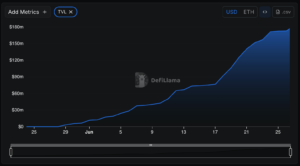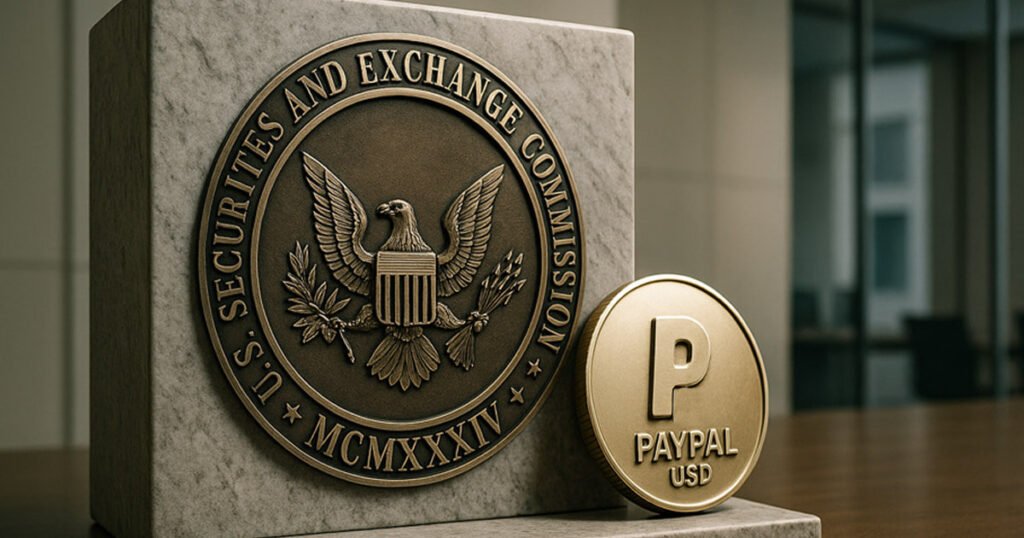Understanding the SEC’s Decision on PayPal’s PYUSD: Implications for Stablecoin Regulation
The U.S. Securities and Exchange Commission (SEC) has officially concluded its investigation into PayPal’s dollar-backed stablecoin, PYUSD, confirming that no enforcement action will be taken. This announcement, detailed in PayPal’s Q1 2025 financial filing, marks a significant moment following the SEC’s November 2023 subpoena that stirred questions regarding the status of PYUSD as a potential unregistered security. By choosing not to pursue further action, the SEC alleviates uncertainties for both PayPal and Paxos, the issuer of PYUSD, suggesting a more nuanced approach to regulating certain stablecoin frameworks in the evolving financial landscape.
The broad scope of the SEC’s initial subpoena encompassed various documents related to PYUSD, yet it refrained from making any accusations of specific violations. This cautious stance aligns with a shift in regulatory attitude since the departure of former SEC Chair Gary Gensler, who frequently posited that many cryptocurrencies could be classified as securities. The SEC’s decision could indicate a thawing of stringent regulatory practices surrounding stablecoins, allowing for a more balanced dialogue about these financial instruments.
PYUSD’s clearance from investigation could play a pivotal role in advancing the legislative trajectory of the GENIUS Act, a bipartisan proposal aimed at establishing distinct regulatory pathways for payment stablecoins. The bill, introduced as S. 919, seeks to create a structured licensing framework for stablecoin issuers at both federal and state levels, mandate 1:1 reserve backing, and enforce monthly disclosures. Such measures could provide a clear framework for stakeholders in the ever-evolving cryptocurrency ecosystem and offer assurances to consumers and businesses alike, promoting trust in stablecoin transactions.
Launched in August 2023, PYUSD is notable as the first payments-focused stablecoin from a major U.S. fintech. Backed entirely by cash and short-term U.S. Treasury bills, it boasts transparency through regular attestations of its reserves. PayPal has integrated PYUSD within its platforms, including Venmo, facilitating external ERC-20 transfers to enhance transactional convenience. Although PYUSD currently represents a small fraction of the global stablecoin market, at approximately $879 million compared to the $241 billion market, it is pivotal in PayPal’s strategy to leverage cryptocurrency for mainstream payment solutions.
Despite facing challenges, such as regulatory uncertainties surrounding custodial arrangements for digital assets, PayPal’s roadmap for PYUSD reflects a commitment to innovation. The company aims to empower over 20 million small businesses to utilize PYUSD for payment settlements in 2025, effectively bypassing traditional payment networks and paving the way for the adoption of stablecoin-based payment systems. However, the legal landscape surrounding digital asset custody remains unclear, with PayPal cautioning users that these assets may not benefit from conventional bankruptcy protections in case of financial distress.
The SEC’s conclusion on PYUSD comes amid broader regulatory scrutiny, including ongoing investigations into PayPal by other regulatory bodies, such as the Consumer Financial Protection Bureau and Germany’s Federal Cartel Office. While these inquiries do not directly involve PYUSD, they reflect the heightened focus on regulatory compliance within the fintech sector. Recent statements from SEC staff highlight that a subset of fully reserved, non-yield-bearing stablecoins—termed “Covered Stablecoins”—are not classified as securities, providing a glimmer of clarity in an otherwise ambiguous regulatory framework. Although this guidance is limited and does not constitute a comprehensive ruling, it reinforces the notion that effective regulations for stablecoins may require constructive legislative action rather than solely relying on enforcement measures.
Overall, the SEC’s decision regarding PYUSD signals a potential shift in how regulators view stablecoins, indicating that legislative solutions could be on the horizon. As this landscape continues to evolve, stakeholders within the crypto and financial sectors must remain vigilant and engaged, advocating for regulations that promote innovation while ensuring consumer protection and market integrity.

















